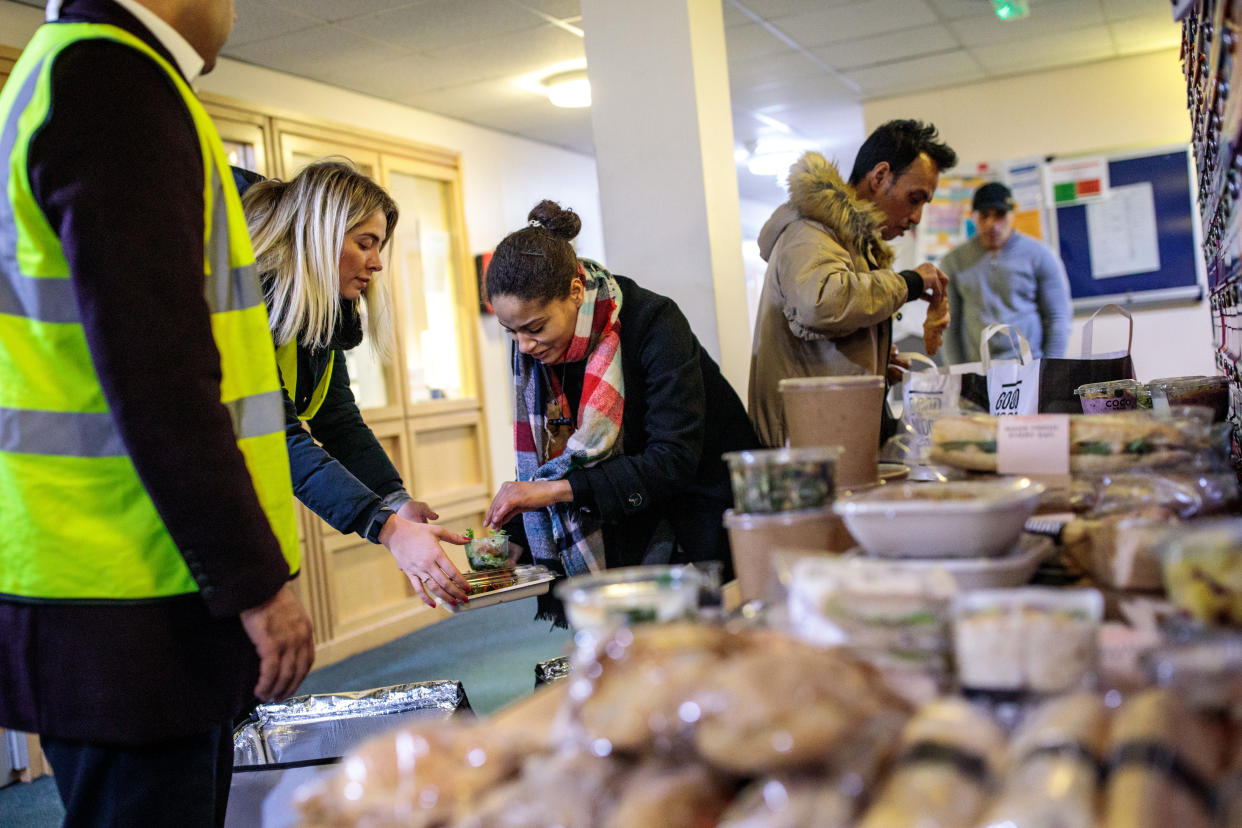Coronavirus exposes UK food supply to ‘crisis of hunger’

The closure of restaurants and cafes, the surge in panic buying, and a reduction in emergency food provision during the coronavirus crisis threatens to quickly spiral into a “crisis of hunger” unless the government acts immediately, a leading think tank has said.
The UK government said this week that 1.5 million vulnerable people will be given food parcels during the crisis as part of a local council scheme being run in collaboration with supermarkets and the armed forces.
But the Food Foundation warned on Friday that, because the pandemic has exposed the “extraordinary fragility of the food system,” millions more will need food aid in the coming days.
Rising food prices and supply chain shocks will compound the issues arising from the fact that many people have seen a drop in income and have become “much more limited” in how they obtain food.
Read more: Domino's hiring extra staff as people order lockdown pizzas
“Millions of people will be experiencing a drop in income because of illness, new childcare requirements, reduced working hours or losing their jobs,” the Food Foundation said.
While the think tank said it was too early to understand the impact of the household income and employment crisis, it noted that food banks were already reporting a surge in demand.
The “stringent” social distancing being practiced by households and individuals who are self-isolating, as well as those who are at heightened risk from the virus, means that millions are not able to leave their home to access food, the foundation noted.
Noting that 30% of the UK’s food and drink expenditure took place outside of the home, the Food Foundation pointed to the impact of the closure of restaurants, cafes, pubs, and bars on the country’s food system.
Read more: Sports Direct's Mike Ashley apologises for handling of coronavirus shutdown
It also said that some pre-existing emergency food provision services, such as community kitchens and food banks, have been forced to close because of infection risks, have seen a reduction in their volunteer base, or seen a drop in food donations.
Food availability has also been affected by the surge in panic buying, the Food Foundation said, leaving supermarkets with “empty shelves and long queues” and producing “alarming images” that only fuel consternation.
“Government leadership to deliver a properly co-ordinated response with local authorities, charities and businesses is desperately needed,” said Anna Taylor, the director of the Food Foundation, on Friday.
Watch the latest videos from Yahoo UK

 Yahoo News
Yahoo News 

